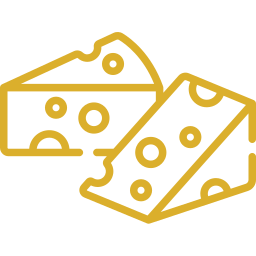Being pregnant will be a nine month adventure to give birth to your baby. In order to follow the guidelines of a safe and healthy pregnancy, it will be necessary to take a few dietary measures. Medical professionals strongly discourage you from eating certain food categories, but it can be hard to know which categories are safe and which aren’t. First we will see why eating etivaz during pregnancy isn’t an issue, then we will evaluate the potential risks of consuming other types of cheese and finally, the benefits of eating etivaz during pregnancy.

Can we eat etivaz during pregnancy?
If you’re wanting to know about what issues can come from eating etivaz during pregnancy, there’s no reason to be worried, it is perfectly safe to do it.
Why is it safe to eat etivaz during pregnancy?
etivaz is a kind of cheese that isn’t a threat to the baby’s health, as it has very little risk of transmitting listeriosis .
What are the problems of eating cheese when you are pregnant and why is etivaz an exception?
Eating etivaz while you are pregnant does not cause any health problems for you or your baby. However, some cheeses might be risky, as they can carry listeriosis. Listeriosis is a disease transmitted by a bacterium (Listeria) often found in soft cheeses, raw milk, unpasteurized milk, …
Listeria is perfectly resistant to cold temperatures; however it cannot withstand heat. This is the same thing as saying you should only eat cheese that has been cooked or that is made from pasteurized milk.
Listeriosis usually manifests as a febrile episode, often isolated. It is not dangerous for the mother, but it can be dangerous for the fetus at risk of abortion or premature delivery.
What types of cheese are to avoid during pregnancy?
You should avoid eating fresh and soft cheeses, cheeses made from raw or non-pasteurized milk and soft cheeses with mold rinds (such as Brie, Camembert, Mont d’Or or some goat cheeses).
Despite this, all cheeses can be eaten as long as they are well cooked to remove any trace of listeria. The cheese must be completely cooked and not just melted.
Food search engine for pregnant women
What cheeses are safe to eat during pregnancy and why can you eat etivaz while pregnant?
It will be necessary to learn how to read the cheese labels to know what is in their composition and how they were made. You should avoid cheeses that are made from raw or unpasteurized milk , and also all soft and semi-hard cheeses. It’s usually better to remove the rind to avoid any possible listeria contamination. If you’re wondering if whether or not it is safe to eat raclette, the answer is yes, as long as you remove the rind and make sure the raclette is made from pasteurized milk and is properly cooked.
Right here are some examples of cheeses that are safe to eat during pregnancy:
- Hard cheese: cheddar, Comté, Gruyère, …
- Soft and melted: mozzarella, cheese spread, …
WARNING: We state that it is safe to eat etivaz while pregnant, but you should always make sure that the cheese has been made from pasteurized milk. For example, some tomes are made with raw milk and others with pasteurized milk.
What are the benefits of eating etivaz while pregnant?
The main nutritional benefit that comes from eating etivaz is calcium . Eat etivaz while pregnant is an excellent source of calcium, which is an important element for both you and your baby.
Conclusion
Eating etivaz while pregnant is perfectly safe. That being so, enjoy!